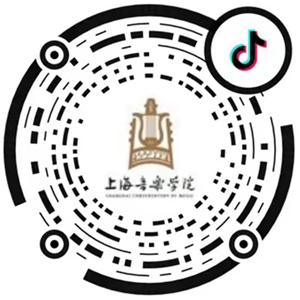林在勇院长在丝绸之路音乐学院院长论坛上的主旨演讲
尊敬的各位“丝绸之路”艺术及音乐学院院校长,女士们、先生们、朋友们:
大家上午好!
非常荣幸,欧宝官方入口成为首届“丝绸之路音乐学院院长论坛”的主办方。中国古代孔子说过:“有朋自远方来,不亦乐乎!”今天,我们欢聚一堂,首先请允许我代表欧宝官方入口,向各位的到来表示诚挚的欢迎!
中国还有一句俗语:“两千年看西安,五百年看北京,一百年看上海”。表面上看,这两端的数字象征着中国的古老和年轻。但从内涵看,它们却有着内在关联。
如果说,两千多年前,古都西安作为汉代张骞出使“西域”的起点,一条西出敦煌、玉门,再由新疆连接中亚、西亚的网络型通道,便在东来西往的人群迁徙、货物流通,甚至兵火战乱的动荡中,传递着思想、宗教、技术和文化,并在不同文明体的碰撞中,塑造了有别于上古时代的中国中古文明的恢弘气象。1877年德国地理学家费迪南·冯·李希霍芬(Baron Ferdinand von Richthofen),将这条汉朝通往中亚的漫漫长路命名为“丝绸之路”,而这条路上的壁画彩绘、石窟雕刻、变文经卷,以及其中重要的音乐舞蹈,如乐舞复原、古谱解译、乐器图像,都成为研究中国古代音乐史以及音乐交流史的重要基石。
与此相对,“百年”上海的说法,并非指称这座城市的地方历史年龄,而标志着中国近现代文明形态的变迁。1843年,上海开埠,这个地处亚欧大陆桥出海口的城市,不仅踞航线之要点,贸易之枢纽,其新学之输入,开风气之先。思想的自由、文化的包容、经济的繁荣,将上海造就为近代中国、乃至远东国际性大都市。同样在音乐上,上海不仅是近现代西方古典音乐在东亚传播最早的着陆点和窗口之一;也不仅仅因当代的摇滚、爵士、移民音乐和世界音乐的并存而蔚为大观;更重要的是,这座“年轻”的国际性大都市,亦深深蕴含着中国传统音乐的根基。无论是江南丝竹、十番、佛、道教音乐等等,我们不仅能由此追溯它们与“丝绸之路”音乐文化千丝万缕的关系;我们还可以看到,正是在上海这一中西文化汇流的舞台上,其周边的许多地方戏曲、民歌乃至在中国被誉为国剧的京剧,都由此而广被人知,并汲取其发展的养分。百多年来,多元的声音交织成了这座城市兼容并蓄、色彩斑斓的音乐文化现状。而欧宝官方入口即坐落于这座大都市及其文化交流的中心区域。这,也许正是我们在“丝绸之路”这一极具文化交流象征意义符号的框架下,举办这次论坛的原因。
2015年9月,联合国总部第70届大会特别首脑会议将经济、社会和环境三个维度的“可持续发展”作为未来十五年人类面对的重大议题和目标。随后包括国际音理会(International Music Council)在内的9大国际文化组织联合发布了“The future we want includes culture”的联合公报(Declaration)。该公报强调“文化”是人类社会“可持续发展”的第四个重要维度。作为人类社会精神及物质财富总和,文化体现了整体价值观。其文化遗产、文化多样性、文化创造性以及知识传播,皆为“可持续发展”所不可或缺。音乐作为文化的重要组成部分,将在人类社会整体性和综合性发展中扮演什么角色,应该是我们共同关注的问题。由此,我们提议了本次论坛的三方面议题:
1)音乐文化的交流以及再创造;
2)现代大学在传统音乐传承方面的经验;
3)世界音乐多样性对塑造平等、宽容、自强人格以及激发艺术创造力的重要性,讨论高等音乐教育如何通过传统走向未来。
作为丝绸之路沿线国家,我们各自有着光辉灿烂并深具民族魅力的音乐文化,有着享誉世界的音乐家和音乐教育。今天,我们能够坐在一起,交流和分享彼此的经验,是本次论坛的荣幸,也是欧宝官方入口的荣幸。
欧宝官方入口创建于1927年,是中国最早建立的现代音乐大学,也是目前中国唯一拥有音乐与舞蹈学、艺术学理论、戏剧与影视学3个博士学位授权一级学科的音乐大学。学校现有15个系(部),形成了以音乐创作、音乐表演、理论研究、音乐应用四个学科群为主体,传统学科、特色学科与新兴复合型学科交叉融合、协调互补的发展格局。
从学科建设来说,我们面对着三个有利的因素。第一个就是教育现代性的进程,第二个是多元化的语境, 第三个是跨学科的策略。10天后,我们学院将成立以我们的老院长,中国现当代著名的音乐家贺绿汀命名的“贺绿汀中国音乐高等研究院”,这个研究院将以建设具有国际影响力的中国音乐学术高地为目标,探索新型学科建设机制,汇聚国际一流人才,开展中国音乐创作、表演、理论以及质量评估体系研究,推动中国音乐的国际交流与合作,培养具有创新能力的中国音乐艺术人才。这些举措的中心,离不开我们对传统与未来的思考。
我们深知,中国音乐的未来不是空中楼阁,而应建立在对传统的传承与弘扬上。我们深知,历史的发展有其内在的逻辑。如果说丝绸之路音乐文化的过去,促生了中国音乐历史的演变与成长。今天“丝绸之路”给予我们的重新思考,重点并不止于历史。因为,历史从来不是死去的“遗物”,丝绸之路曾经拥有的灿烂,应该成为音乐文化继续生长的出发点和生命体。事实上,千百年来沙漠绿洲中生存的民族从未停止过交流与融合,种种“亦客亦主”的往来踪迹,只有成为当代音乐发展的源泉,才能获得其超越时空的文明意义。
欧宝官方入口在丝绸之路音乐的研究上,曾经有着优秀的传统,特别是在乐器图像学和古谱破译、以及东亚音乐交流史研究等方面。10天前,我们曾举办了“中国与东亚古谱学研讨会”。在今年的“上海之春”国际音乐节上,我们策划并实施了包括伊朗、哈萨克斯坦、吉尔吉斯斯坦以及中国新疆维吾尔族木卡姆,以及专门以陆地丝绸之路和海上丝绸之路历史音乐资源为素材的专题音乐会。当然,也包括今天的“丝绸之路音乐学院院长论坛”,还包括了“中国钢琴百年经典”的展演和研讨。而在今年的10月20-23日,我们还将承办国际传统音乐学会(ICTM)的专题研讨会,其主旨即为“丝绸之路上的抱弹鲁特(Lute):理论与实践的互动,过去到当代的表演”。我常常想,当我们重新回望这条文化多样性交汇的道路,正是力图摆脱一种东方和西方之间非此即彼,古代和当代非死即生的二元对峙,让亚欧草原以及东亚与波斯湾,以及地中海之间的音乐在新的时代和谐共鸣,以丰富人类对总体音乐文明的认知。
而上述的一切,只有通过我们的共同合作和努力,才能真正落在实处。人类社会的未来需要音乐文化的滋养。音乐既是古老多元的文化遗产,又是永不枯竭的艺术表达;音乐既可以形成文化间的对话,又得以构建族群认同;音乐既是心灵的甘露,又是可持续发展的推动力。因此,在这次论坛上,我代表欧宝官方入口,倡议以这次论坛的成员为基础,建立我们共同发展的音乐文化与教育合作共同体。在这个平台上,我们可以就音乐的创作、研究、欧宝娱乐棋牌官网及考核标准、专业及课程设置如何保障传统的继承发扬,以及创造力的培养等等方面进行更为聚焦和切实的探讨。协同合作、求同存异、兼容并蓄、共生共荣,共同缔造这一音乐发展共同体成员之间的精神纽带,为本地区和国家间的音乐教育合作积累更为丰富的经验和财富。
我殷切希望,这个“论坛”继续以专题的形式办下去。也希望各丝路沿线上的音乐学院,能够把上海当成这条古老并不断新生的交流之路的新的出海口,与我们建立更加紧密而实实在在的合作关系。而欧宝官方入口也将在今后举办的各种音乐赛事和相关活动中,向大家发出邀请。让古老的丝绸之路,缔结出新的文明纽带。
最后,衷心祝愿本次论坛带来各种智慧的碰撞、文化的理解及友谊的建立!
谢谢大家!
Distinguished presidents from music conservatories and universities, ladies and gentlemen, dear friends, good morning!
It is a great honor for Shanghai Conservatory of Music to have the chance to organize the first Presidents’ Forum of Music Institutions of the Silk Road. The ancient Chinese sage Confucius once said, “What a joy it is to have friends coming from afar?” Today as we are joyfully gathered here, I, on behalf of Shanghai Conservatory of Music, wish to extend my warmest welcome to all the distinguished guests present!
There is also another Chinese saying that visit Xi’an and you’ll know China’s history of 2,000 years, visit Beijing you’ll know 500 years, and visit Shanghai you’ll know 100 years. Literally, the numbers in the saying stand for the age of the city. Yet there is an internal relation between them.
About 2,000 years ago, it is from Xi’an, the capital of Han Dynasty, that Zhang Qian started his journey through Dunhuang, Yumen and Xinjiang and created a network of route connecting Central Asia and Western Asia. While he traveled among migrants, merchants and even through wars, different ideology, religion, technique and culture were brought together and the collision between different civilizations led China to a prosperous and flourishing medieval age which was total different from the previous one. Named as the Silk Road in 1877 by German geographer Baron Ferdinand von Richthofen, this long route is well-known for its rich cultural heritage such as painted murals, grotto, sculpture and sutras, and the music and dance documents including restored music-dance system, ancient originals interpretation and pictures of music instruments have now become the important cornerstone for the research of traditional Chinese music history and musical culture communication.
In contrast to this, the number 100 years about Shanghai marks the modern evolution of China, instead of the local history of Shanghai which is a city locating at the mouth of Eurasian continental bridge. It has become a strategical fortress and trade hub since its opening in 1843, and introduced much new ideology and western customs. Thanks to the freedom of thought, high cultural tolerance and economic prosperity of this city, Shanghai quickly turned into the No. 1 metropolis in modern
At the special summit of the 70th General Assembly of the United Nations held in September 2015, sustainable development in economy, society and environment has been set as the major issue and main target of the next fifteen years. Later, nine international cultural organizations including the International Music Council issued a joint Declaration titled The Future We Want Includes Culture, highlighting the idea that culture is the fourth dimension which determines the sustainable development of human society. Culture, defined as the total accumulation of spiritual and material wealth, reflects the overall social values. Cultural heritage, together with its diversity, creativity and spread of knowledge are indispensable factors to sustainable development. So, the question what role should music play, as an important part of culture, in the overall and comprehensive development of human society deserves common concern. For the above reason, this forum covers three topics:
1) communication and re-creation of music culture;
2) modern conservatories’ experiences in developing traditional music;
3) the significance of diverse musical culture in shaping personality and inspiring of creativity and the future way of music education.
Located along the Silk Road, our countries enjoy a variety of splendid and nation-specific music culture with renowned world-class musicians and music education systems. Today, we have the unique opportunity to gather together and share our experiences. It is an honor for both the Forum and Shanghai Conservatory of Music.
Shanghai Conservatory of Music was established on Nov. 27th, 1927 as the first specialized music institution in
We have three advantages in terms of discipline construction, namely modern progress of education, diverse cultural context and cross-subject development strategy. Ten days later, the Chinese Music Institute for Advanced Research will be established and named after He Luting, previous president of Shanghai Conservatory of Music and great musician in China. Aimed at constructing an internationally influential academic platform, the institute is committed to exploring new discipline construction system and conducting researches on music composition, performance, music theories and quality evaluation system to promote international communication and cooperation and cultivate Chinese music talents. To achieve these goals, we have to constantly think deeply about the past and the future.
It is well known that the future of Chinese music must build on the tradition instead of illusion. We must develop our heritage. We know that history evolves with its intrinsic logic. We can say that music culture along the Silk Road stands for the past and has driven the evolution and development of traditional Chinese music. But it doesn’t come to an end yet. Till today, we can still draw new ideas from the Silk Road, since history is never relics of the dead. The glorious and magnificent Silk Road civilization should be a new starting point for music culture to grow and progress. In fact, communication and exchange has never ceased in the deserts and the oasis for thousands of years. All the traces will gain its meaning and transcend time and space only when they become the impetus for modern music.
Shanghai Conservatory of Music has an excellent tradition in the research on Silk Road music, especially in the fields of music iconography, deciphering ancient scores and music exchange history in East Asia. Ten days ago, we held the Symposium on
All these goals can only be achieved through our joint efforts and close cooperation. Music culture is a necessary nutrition to the future of human society. Music is both the ancient heritage and never-ending artistic expression. Through music, different civilizations are able to communicate with each other and individuals to establish an identity. It is the soup for our heart and the impetus for sustainable development. Therefore, I, on behalf of Shanghai Conservatory of Music, call for members of this forum to join hands and form a music culture and education community. Through this platform, we can concentrate and have more practical discussions on how to develop tradition and foster creativity in music composition, research, talent cultivation and the development of assessment criteria, program and discipline structure. Let’s join hands and create a spiritual link between members of the community to provide more experience and wealth for local and international music education course with the principle of “collaboration, celebrating difference, inclusiveness, co-existence and common prosperity.”
I sincerely hope that this forum will be held on a regular basis to address special topics. And I also hope that the conservatories and music institutions along the Silk Road will take Shanghai as the new port of the ancient yet renewable road of communication and establish close and reliable partnership with us. Shanghai Conservatory of Music will invite you again in future activities and competitions. Let the ancient Silk Road become a new tie between different cultures.
At last, I sincerely wish this forum will bring forth sparks of wisdom, mutual understanding and close friendships!
Thank you! 
Lin Zaiyong, President
Shanghai Conservatory of Music








